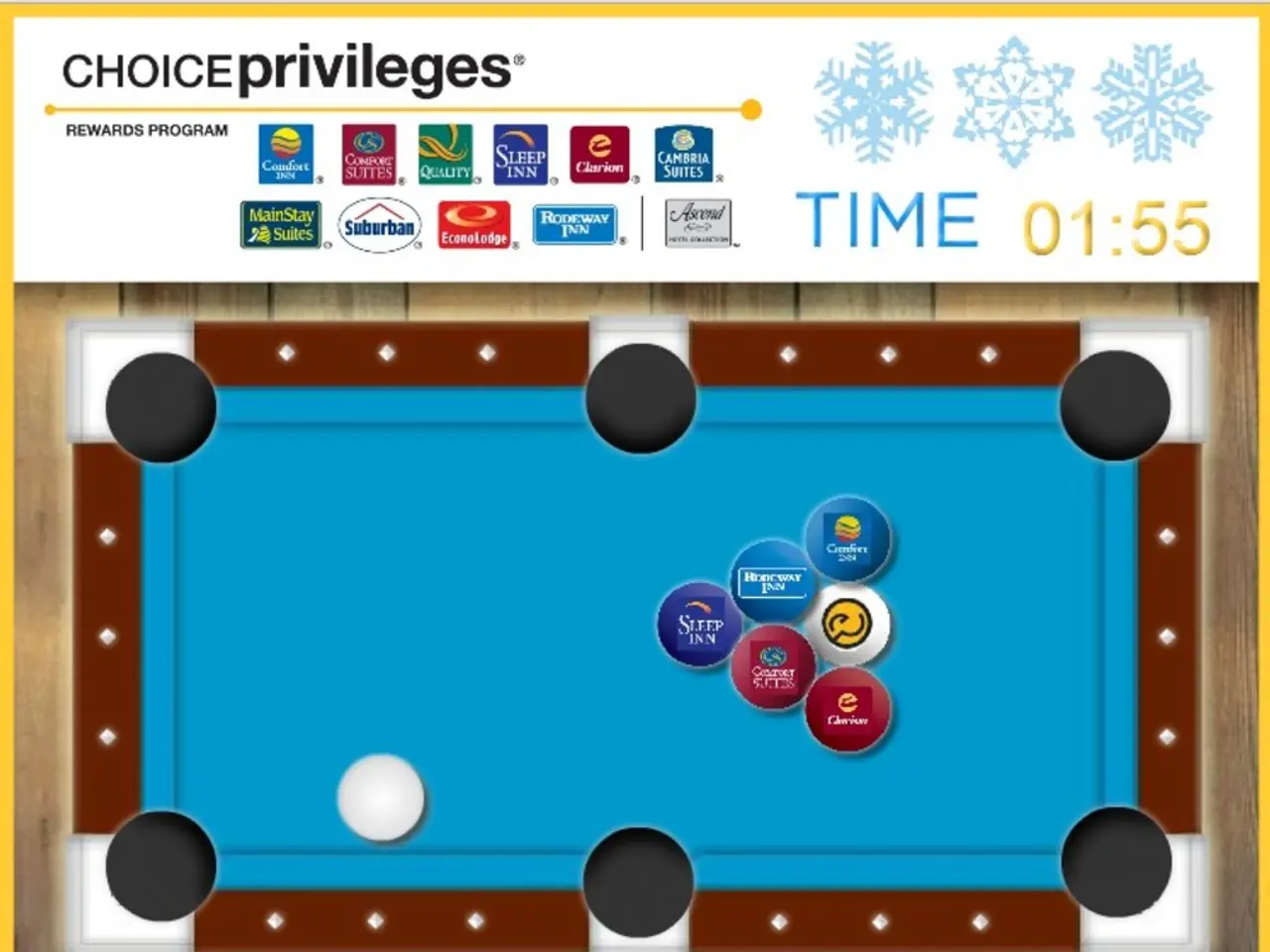Efficient Gaming Lifestyle: Six Effective Strategies to Harmonize Gaming and Daily Tasks
In the realm of gaming, whether you're a competitive gamer or a casual player, the importance of proper rest and effective time management can't be overstated. Here are some strategies to help you maintain focus, improve performance, and strike a balance between gaming and real life.
Firstly, decision-making skills suffer without adequate rest. So, it's crucial to ensure you're getting 7-8 hours of sleep per night, as recommended for adults, to keep your cognitive performance at its peak during gameplay sessions.
Taking breaks during long gaming sessions is equally important for maintaining focus. The 50/10 rule suggests taking a 10-minute break for every 50 minutes of gaming to maintain focus and prevent physical strain. Alternatively, the 20-20-20 rule, which involves looking at something 20 feet away for 20 seconds every 20 minutes, can help protect your vision.
Effective break activities include stretching, drinking water, and getting fresh air. Maintaining a comfortable and ergonomic setup, with comfortable seating, also helps you stay focused for longer periods.
Finding the right balance between gaming and real life takes smart planning and self-control. A structured gaming schedule helps you enjoy games while staying productive and prevents gaming from taking over your entire day. Multitasking, on the other hand, kills performance, so focusing on one task at a time leads to better outcomes across the board.
Cognitive performance drops significantly with poor sleep habits, affecting memory formation and problem-solving skills. Therefore, it's essential to identify and address any sleep issues that might be sabotaging your gaming potential. Sleep assessments can be beneficial in this regard.
Maintaining composure and focus while gaming requires a clutter-free gaming area and desk space. Gaming works best as a motivational tool that drives you to finish important tasks first, setting up a simple system where you earn one hour of gaming time after completing work assignments, household chores, or academic responsibilities.
Installing website blockers on your computer can help prevent browsing distracting sites while gaming or working. Research shows that 24% of teens game after 9 PM, which hurts their sleep patterns and negatively impacts school performance. Creating separate spaces for studying and gaming enhances focus and prevents mind wandering.
Using noise-canceling headphones or playing ambient sounds to block out household noise and external interruptions improves focus during gaming sessions. Gaming disorder affects millions of players who lose track of time and neglect essential activities like homework, physical activity, and proper sleep.
Poor sleep quality reduces concentration and increases mistakes during gameplay. Longer gaming marathons require more substantial rest periods of 20 to 30 minutes every four hours. Placing your phone in another room or using airplane mode helps resist the urge to check messages constantly.
Turning off phone notifications, closing social media tabs, and silencing messaging apps before starting a gaming session reduces distractions. Setting clear boundaries for gaming, such as no gaming before specific times, helps maintain discipline throughout the day.
Setting clear goals and priorities for gaming helps transform chaotic habits into focused sessions that enhance both playtime and life balance. Organizing study materials and supplies for easy access helps avoid wasting time during breaks.
Avoid gaming for more than six consecutive hours to prevent hurting performance and health. Longer gaming sessions may require more substantial rest periods. Communicating your schedule to friends helps balance social life and avoid unexpected calls or visits during gaming time.
Improving sleep quality is particularly critical since poor sleep mediates the negative impact of excessive gaming on cognitive and emotional health. Interventions like sleep hygiene education, relaxation techniques, and cognitive-behavioral therapy for insomnia can improve sleep quality, helping reduce anxiety and depression symptoms linked to gaming disorder.
Early identification and treatment of underlying mental health conditions—such as anxiety and depression—are important prevention strategies. Integrating mental health screening with gaming behavior assessments and prioritizing therapy that addresses both psychopathology and problematic gaming can reduce the risk of addiction and associated psychological distress.
Physical activity and reducing screen time collectively improve mental health outcomes; reallocating even small amounts of time from gaming to exercise or sleep positively impacts anxiety and depression symptoms. Encouraging involvement in clubs, sports, or volunteer work also supports healthier social connections which can reduce the reliance on gaming for emotional escape.
In summary, managing excessive gaming time effectively relies on combining time limits, improving sleep, addressing mental health issues early, promoting offline social and physical activities, and maintaining open supportive communication.
Incorporating technology can aid in maintaining a balanced lifestyle; for instance, website blockers help prevent distracting surfing, and sleep assessments can identify potential sleep issues. Furthermore, utilizing technology such as noise-canceling headphones or ambient sounds can improve focus during gaming or work sessions.




